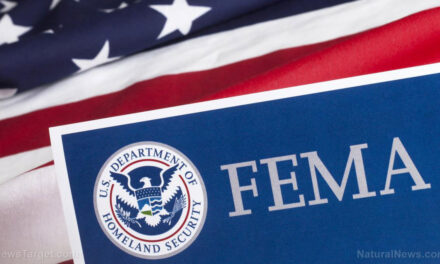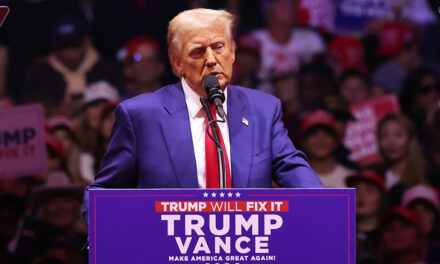We support our Publishers and Content Creators. You can view this story on their website by CLICKING HERE.
Texas Attorney General Ken Paxton has announced that he is investigating a liberal advertising cabal over allegations that it carried out a conspiracy to boycott particular social media platforms.
According to a statement by his office, he will be looking into whether the World Federation of Advertising (WFA) and its nonprofit wing known as the Global Alliance for Responsible Media (GARM) pressed advertisers to avoid buying advertising space on sites that it claims did not adhere to its so-called “brand safety standards.”
The AG’s press release explains what is at stake: “Although companies are free to choose when and where they want to advertise, a conspiracy among companies along these lines can result in harm to competition and may violate the Texas Free Enterprise and Antitrust Act of 1983.”
In July, a House Judiciary Committee report accused GARM and its members of launching a coordinated plan to suppress free speech online and restrict ads on sites such as Elon Musk’s X social media platform and the New York Post website.
The House report cited internal emails from GARM, including one from executive Robert Rakowitz in which he bragged that X had dropped to “80% below revenue forecasts” after the group targeted them.
As part of his investigation, Paxton is asking WFA and GARM to hand over documents and information so he can investigate whether they have violated the state’s antitrust laws.
“Trade organizations and companies cannot collude to block advertising revenue from entities they wish to undermine. Today’s document request is part of an ongoing investigation to hold WFA and its members accountable for any attempt to rig the system to harm organizations they might disagree with,” he wrote.
Advertisers have been reducing ad spending on X since Musk took over
A number of WFA members, including global brands like CVS Health, Coca-Cola and IBM, have either stopped or considerably decreased the amount of money they spend advertising on X since Musk took over the platform. In particular, a swarm of big-name advertisers such as Disney and Apple left the platform last November after the Center for Countering Digital Hate and Media Matters issued a report implying that X wasn’t moderating posts and failed to remove hateful content.
Following the release of the House Judiciary Committee report this summer, Elon Musk filed a federal antitrust lawsuit against the WFA and GARM, along with some of its biggest advertisers, for organizing the ad boycott, which they say cost them billions of dollars worth of ad revenue.
GARM ceased operations in August, citing the legal costs of its fight against Elon Musk. Last month, X reached a settlement with one of the defendants in the suit, Unilever, who said at the time that they would resume their advertising on the social media platform; antitrust claims against the other defendants are still ongoing, however.
IBM, Disney, Comcast and several other major brands have also returned to X this year, although some of the advertisers who have returned are not buying nearly as many ads as they did in the past.
In response to Paxton’s announcement of his WFA investigation, Musk wrote on X: “This is still a major problem.”
The outcome of the case could extend far beyond the specific parties involved and have repercussions for the advertising industry in general and the way it exerts its influence on social media conversations.
Sources for this article include:

 Conservative
Conservative  Search
Search Trending
Trending Current News
Current News 





